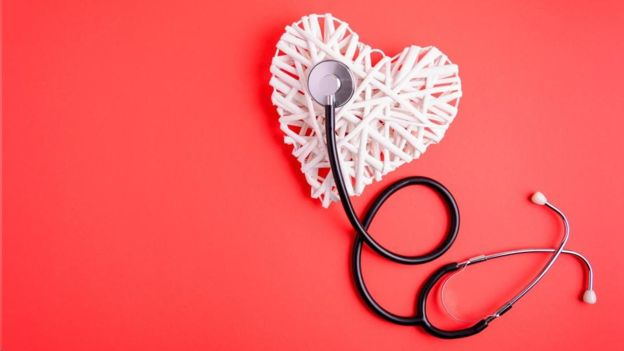Contact Admission
International Collaboration
IS DRINKING ALCOHOL GOOD FOR HEALTH?
IS DRINKING ALCOHOL GOOD FOR HEALTH?
Jessica Brown BBC Future

We often hear that it is better to drink a glass of wine from time to time than not to drink at all. But that is not necessarily true: Alcohol kills millions of people each year, but people have been drinking alcohol for thousands of years, especially in recent decades, wine is said to be very healthy. strong. Red wine is even thought to help extend longevity and reduce the risk of heart disease, but is it really healthy? The first question is of course what we need to define is 'good for health'.
Many people think about heart health when it comes to the effects of wine. Lesser known is that research shows strong links between alcohol and cancer. Drinking one bottle of wine per week is likely to increase the risk of cancer in men by 1% and in women by 1.4% for non-smokers. Thus, drinking one bottle of wine per week is equivalent to that of men smoking 5 cigarettes, or women smoking 10 cigarettes. "If a lot of research has been done to find out the association between smoking and cancer, the same study on alcohol is very little. The reason is because the health authorities control these drugs." message about smoking, but for alcohol it largely depends on the alcohol industry itself, ”said Mark Bellis, director of international research and development policy at the Department of Health. Wales, says. The interpretation that research results suggest healthy drinking dates back to the 1970s, when scientists found that the French were less likely to suffer from cardiovascular diseases than populations. otherwise, even though they eat more foods with more saturated fat. Low levels of heart disease have a clear relationship with alcohol consumption. This is known as the French paradox, a conundrum that scientists have yet to solve.
In the 1970s, scientists discovered that the French had less cardiovascular disease and this is believed to be related to drinking alcohol. Since then, we have been led to believe that moderate drinking will help reduce the risk of cardiovascular disease, high blood pressure, diabetes and weight gain. "Early research shows that moderate wine drinking has a 'J-shaped' effect," said Helena Conibea, co-director of the International Science Forum for Wine Research. "Regularly drinking wine in small amounts is likely to prolong life, improve health and help fight cognitive decline. Since then, more than 1,000 studies have been published to reassert internal medicine. This one. " As a result, over a long period of time it was agreed that not drinking at all is not as good as drinking a reasonable amount of alcohol (equivalent to one or two units of alcohol per day). But the "J" relationship between drinking and death and illness has been criticized. Now the problem is widely understood that this data has a lot of flaws: there are people who do not drink because they are not well, not that they are not feeling well because they do not drink.
A 2006 analysis of 54 previously published studies found no correlation between moderate alcohol consumption and a low risk of cardiovascular disease.
Studies show that people who drink in moderation have a low risk of heart disease ... but not really. But since then, other studies have shown conflicting results, Conibear said. "Over the past five years, research has looked at different factors," she said. "We know that wine drinkers appear to be healthier, have better education and live less volatile lives - and in this case the J-curve is irrefutable." She said the researchers dodged this stereotype by choosing test participants who had never drank alcohol before, rather than those who had already drunk but now quit, because they were more likely to quit. alcohol is for health reasons. In a 2019 study, researchers took a different approach to determine if moderate drinking was associated with a low risk of cardiovascular disease. For 10 years, they followed more than 500,000 adults in China where two genetic variations affect drinking habits (ALDH2-rs671 and ADH1B-rs1229984) instead of because of poor health. They also exclude people in poor health. "People without disabilities can drink as much as they want," said Zhengming Chen, one of the study's authors and a professor of epidemiology from the Nuffield School of Public Health at Oxford University. . "But those whose enzyme is not working perfectly will not be able to drink any alcohol," he said.
The researchers also put Chinese women in a group to follow, because although many women in this country can drink well, many of them do not drink for social reasons, not for health problems, Chen said. One study found that the more people who drank, the more likely they were to have high blood pressure and stroke, but not a heart attack within 10 years. This time, the researchers found no correlation in the 'J' shaped curve. Instead, they found that the more people who drank the more likely they were to have high blood pressure and stroke - and there was no reduction in disease risk in those who drank one or two units of alcohol per day. There was also no connection to heart failure either. And so while there is a clear link between drinking and risk of stroke, there is something in alcohol that also protects us from heart failure. "Our research shows that alcohol certainly has a protective mechanism, since regular drinking raises blood pressure, but with heart disease the link is relatively flat," Chen said. Overall, alcohol may help reduce the risk of heart disease but raise blood pressure instead. However, it is not clear if the positive effects of alcohol outweigh the negative effects. ”So even if blood pressure rises, there may be another mechanism to rebalance blood pressure levels. But we're not sure if this defense is strong enough to compensate for the fact that alcohol raises blood pressure. " It is important to note that researchers have converted all alcoholic beverages into standard wine units, so the results are not only true for wine. However, Chen says wine will not give any other results.
Red wine
Wines are often considered a "healthier" option because they contain antioxidants, called polyphenols. Also found in fruits and vegetables, polyphenols reduce the level of swelling in the body, which is a factor in disease. This substance in red wine is ten times higher than that in white wine. Alberto Bertelli, a research fellow at the Department of Biomedical Sciences at the University of Milan, found that small amounts of wine can help fight heart disease, partly due to the beverage's anti-inflammatory properties. He recommends no more than 160ml of wine a day, but only with it with Mediterranean meals. Research has focused on resveratrol polyphenol, a compound naturally present in grape skins and seeds. Resveratrol is thought to protect the body against high blood pressure by dilating blood vessels.

Most research in wine and health has focused on resveratrol, an antioxidant found in grapes. Although resveratrol is not present in white wine (although it does in white grapes), Bertelli observed that the French paradox also applies to white wine drinking regions in France. In other words, white wine can be healthy as well - if it does have a positive effect. "We found in white wine two common compounds, found in extra virgin olive oil, which is recognized as a healthy food, but the amount of these compounds in white wine is high in strength." the equivalent in olive oil, "said Bertelli. These compounds, tyrosol and hydroxytyrosol, are also believed to help protect us against Alzheimer's disease. However, most researchers find that the positive effects for our health are only found in red wine. Red wine can be good for gut health, and in turn it has many benefits to other parts of the body, such as improving immunity and digestion, and helping you gain weight. body weight at a more balanced level. In a recent study, practitioners followed twins' drinking habits and found that drinking red wine could improve the diversity of bacteria in the gut, making us feel healthier. But the observed benefits for gut health were those who drank only one glass of red wine per week and anyone who drank more than two small glasses per day was excluded from the study. Drinking a glass of red wine every night helps you have a lower BMI and better gut health, but red wine drinkers can simply be healthy from the start (Credit: Getty Images)
Researchers also found that red wine drinkers had a lower body mass index (BMI). This may also be the reason why drinking red wine in moderation is linked to health. It's not that red wine makes you healthier, but that red wine drinkers from the start are healthier. "Red wine drinkers tend to exercise more, be healthier and healthier," says Bellis. The same is true of the gut health question: because this is observational research, researchers cannot determine whether a glass of red wine per week fills up the gut's gut. You are healthier, or people with healthier bowels are the ones who normally drink one glass per week. And the conduct of randomized controlled trials in which the participants were divided into groups and their health was noted when they followed different diets, most likely unscrupulous. when alcohol is involved. There have been a few randomized controlled trials that have been conducted - but they did not help draw conclusions. A 2016 study found that drinking a glass of red wine while having dinner continuously for six months had no effect on the blood pressure of people with diabetes. Another randomized controlled study conducted from 2015 found that drinking 150ml of red wine may reduce the risk of stroke and heart disease in people with diabetes.
Best choice for health
In fact, while red wine may be the healthiest drink, it's healthier if you don't drink it at all, says study author on wine drinking and gut health, Caroline Le Roy , says research assistant at King's College London. "We know alcohol is not good," she said. "If you drink, choose red wine, as this is the only alcoholic drink identified with positive health effects, but I do not recommend people to drink red wine."
Red wine is the only alcoholic drink that has been identified as having positive health effects, but that doesn't mean it's a healthy beverage.
Research generally assumes that resveratrol is responsible for all of the body's defense mechanisms. But while some researchers believe that resveratrol's capacity, once absorbed into the bloodstream, will be sufficient to induce antioxidant effects, others have doubts about its existence in the bloodstream. long enough to have a positive effect on us or not. "There is controversy over how well you can get it from a glass of wine and its bioavailability, which is the body's ability to absorb it in a healthy way," Conibear said. Resveratrol supplementation has received more attention in recent years. However, the obtained data show conflicting results around the effects of resveratrol-containing drugs. Bertelli argues that we need the alcohol content of the alcohol to absorb resveratrol. "Resveratrol has similar bioavailability to the other polyphenols found in fruit, but it doesn't matter how much you eat, but how much of that substance gets into the bloodstream,"

Other news
- How Dangerous Is Nipah Virus? Medical Alert and Urgent Health Recommendations ( 14:13 - 27/01/2026 )
- Predicting Disease from Sleep – A New Breakthrough Study ( 14:01 - 13/01/2026 )
- Medical advances predicted to break through in 2026 ( 13:54 - 12/01/2026 )
- Vietnamese medical miracles in 2025 – inspiration for medical students ( 07:54 - 07/01/2026 )
- Updating the SOFA-2 Score: A New Standard in the Assessment of Multiple Organ Failure After Three Decades ( 10:40 - 31/12/2025 )
- Home AEDs: High Life-Saving Effectiveness, but Not Cost-Effective at Current Prices ( 14:12 - 18/12/2025 )
- Artificial Intelligence and Pediatric Care ( 08:27 - 16/12/2025 )
- Applying Clinical Licensing Principles to Artificial Intelligence ( 09:36 - 08/12/2025 )
- U.S. Approves Targeted Lung Cancer Therapy Datroway ( 08:43 - 25/06/2025 )
- Therapeutic potential and mechanisms of mesenchymal stem cell-derived exosomes as bioactive materials in tendon–bone healing ( 08:38 - 23/11/2023 )


















